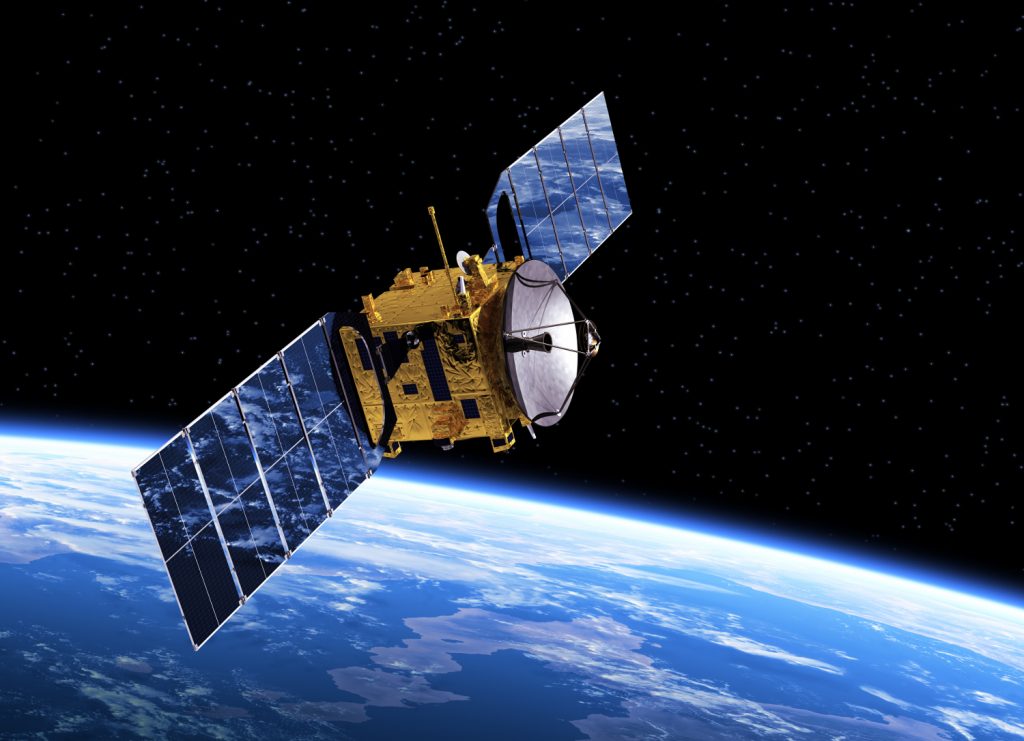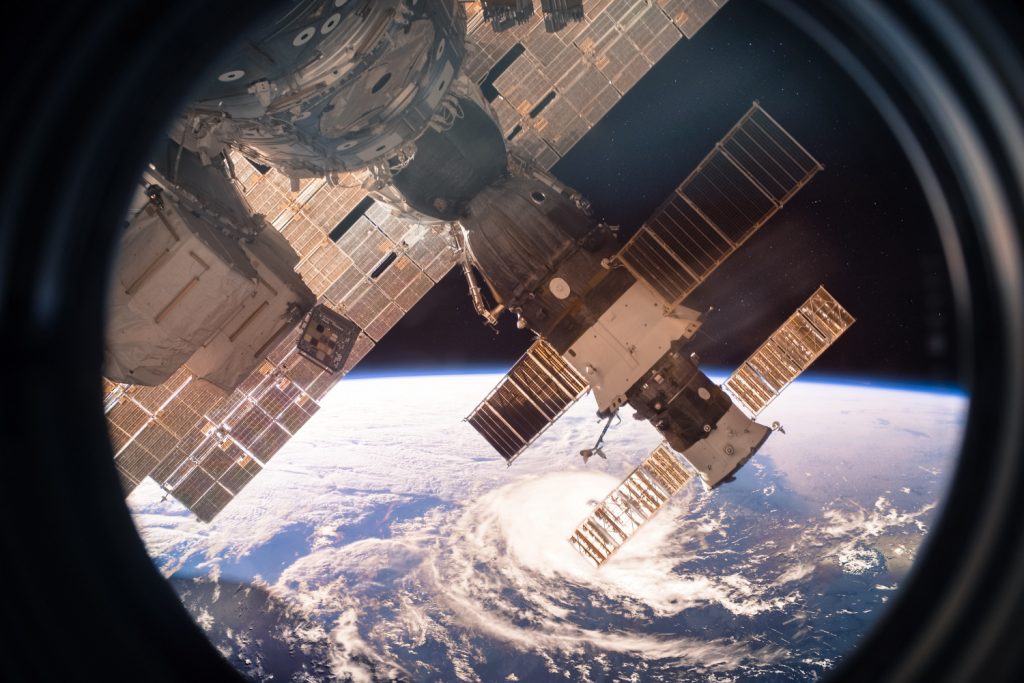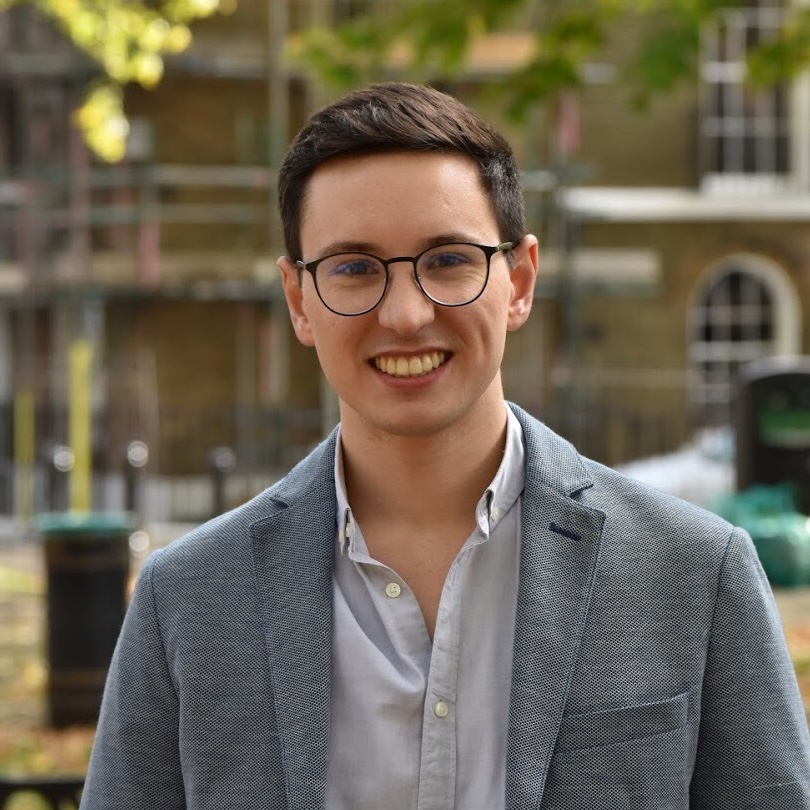Matthew Manso de Zuniga, City Law School alumni, reports up on a talk held at King’s College back in September (publication delay = editor’s fault!).
Arriving for an evening talk hosted by the King’s Information Technology and IP Law Society (KIIPS), I had expected from the title that the focus would be on the growing corporate presence in the space industry and some of the knottier legal issues around cosmic private property rights. I had read an introductory book on space law earlier in the year, which had outlined some of these issues and explained the major treaties, so when the event was listed I eagerly signed up. The hour turned out to be less lecture and more autobiography, and it was clear that the speaker had experienced a lot of success in his life. Some way into the second half of the talk he moved on to a brief history of space exploration and concluded with a section on the future.
A career in the space industry
Professor Kevin Madders put particular emphasis for his life’s work in the space sector on having taken public international law during his undergraduate degree at Kings College London, where he also studied jurisprudence, company law and European law (then the EEC), the first year that it was offered. After becoming a barrister in 1977 he went on to teach law before completing a pupillage under then pupil master Michael Howard, who would go on to lead the Conservative Party. Professor Madders might have ended up in politics himself but was ‘saved’ by a bar school colleague, who was getting married and needed someone to take over his job. His module came in useful as he took this position at the Max Planck Institute for Comparative Public Law and International Law, moving to Heidelberg in Germany and learning German in the process.
While researching for the Institute, Professor Madders came across an article on the European Space Agency (ESA), and (having already studied a Masters in ‘law and policy studies’ at Yale in 1982), started a PhD thesis at Cambridge titled ‘European space integration : a legal-systemic inquiry’, which was awarded to him in 1989. Again the link with the public international law module – it was a time when most space activities were funded by states, and it was because of this that he got into space policy. One day Professor Madders received a phone call from the ESA, offering him a job, which he took, becoming counsel to the organisation.

During his time at the ESA, a chamber for testing spacecraft caught on fire and they needed someone with tort experience to take on the litigation, which he did. Another memorable moment was going to negotiate a treaty for Finland to become an associate member state of the ESA (he compared associate status to the relationship between EFTA and the EU).
Other highlights from his career include going to Ascension Island in the South Atlantic Ocean to negotiate an agreement about an installation there, which became relevant after the Brexit vote because the UK may have to leave the Galileo programme (Europe’s global navigation satellite system). The installation apparently became a negotiating card with the EU. He was also given responsibility for the legal aspects of the selection criteria for European astronauts, which there was a competition for with 10,000 applicants. He was involved in creating the ‘rules of the road’ for rockets carrying cargo. This apparently boiled down to trade quotas, which is not technically the mandate of the ESA so the approval of the EU was required. As the EU evolved, competition between them and the ESA emerged. The EU eventually took on a greater role in the science and technology field. Finally, following the end of the Cold War he was chosen for a workshop on space cooperation in Hawaii, with specialists from around the world attending.
Space, Professor Madders said, is “absolutely a strategic field and therefore a political field as well”. This was never more keenly felt than after the Berlin Wall fell. The ESA had been the ‘new kid on the block’ for space, but after 1989 they began to realise how much of their money came from the political configuration of the Cold War. Funding fell and the ESA was forced to save money. Professor Madders took some time off to finish his PhD research and wrote a book called ‘A New Force at a New Frontier’, which was first published in 1997 (a new edition was released in 2008). During his research leave, a crane fell over on a launch facility building and crashed on a satellite. He was subsequently engaged as an expert on the issue.

Professor Madders then spent some time working in telecommunications. He said he understood the context because to operate a satellite you need to use telecommunications on the ground. Though he was “wanted for telecommunications”, when private companies started entering the industry he was “also wanted for space” again. So when a gentleman from the military spoke to him, they ended up founding a consultancy together called Systemics Network International (SNI), which he describes as “a partnership under Belgian law in 1996 to provide the basis for creating a managed ‘network of excellence’ among recognized experts and firms specialized in high-technology fields, especially space and ICT”.
Professor Madders returned to teaching when he was invited to give classes in Belgium and at Kings College London. Today he is also a company director at International Telecommunications And Space Systems (ITSS) and Trans-European Satellite Services (TESS). He is most proud to have contributed to the development of the International Space Station, participating in the negotiations.
Lessons from his career
Professor Madders tried to draw some themes from his career under the title “What did I learn that I should tell you?” The first was the necessity of having a multidisciplinary approach to every aspect of work, from your understanding to your contacts. Having “multiple disciplines in which you are conversant” is an advantage, he says, because it allows you to draw on this knowledge to understand clients and others, while the contacts from different backgrounds may come in useful at unexpected times.
“It’s not just about the money – think policy, think communication, think ethics”. Professor Madders described himself as a technocrat, and told us that we need to have a ‘communications mentality’. He said it was important to be able to look yourself in the mirror.
The importance of people was his next point – “human solutions to human problems”. He noted that both the problems and solutions are transnational. In the same vein, we should never underestimate people, but not overestimate them either. Everyone has something to contribute, but we need to appreciate people’s actual capacities, which extends to what people in authority don’t know.
Similarly balanced, we should be wary of comfort zones, but also of hubris – ‘just enough’ is often fine. How far outside your comfort zone you wish to go doesn’t need to go down to the equations for rocket launches, for example. Another balance – negotiation is frequently possible, but know when to stop. “Don’t leave the other side destitute”.
Finally, “genuine interest and creativity can really pay off, but be ready for the hard work”. As with most of these lessons, it is very much a platitude, but worth remembering nonetheless.
The story of space
The last section of his talk covered the broad history of space exploration, starting with images of an astronomical clock tower attributed to Su Song (1020-1101 AD) and the V-2 rocket, which had its first successful flight in 1942, becoming the first man-made object in space and marking the modern era of space flight. The next slides moved swiftly over Wernher Von Braun, Sputnik, and the early convergence of a ‘general technology targeting initiative’ in ARPA, which lost out to ‘a specific space agency’, NASA (“A decision on good management grounds was taken to create NASA”). The next slide documented ‘the post-Apollo dilemma’, which graphically showed the drastic funding cut after the success of the moon programme.
We moved through the principles of the 1967 Outer Space Treaty, of particular note the ‘no national appropriation’ rule, which prohibits private property rights over space matter, and the strict liability of states for ‘damage by their space objects’. The latter is of particular relevance to the issue of collisions, such as the 2007 Chinese anti-satellite missile test, when a weather satellite was intentionally destroyed. This led to a US ‘démarche’ (a formal diplomatic representation) citing Article IX of the Outer Space Treaty, which commits parties to “conduct exploration of [the Moon and other celestial bodies] so as to avoid their harmful contamination […] resulting from the introduction of extraterrestrial matter”. Anyone interested can go to the website http://stuffin.space/ to view space debris and other objects that are currently being tracked, including the 2009 Iridium 33 collision debris, an accidental collision between Russian and US satellites.

Professor Madders spoke about the legal regime for the International Space Station of which there are three main strands. One governs the ‘modalities’ internationally (in this context, modalities means the “formulas, targets, or specific measures used to accomplish objectives in trade negotiations”). Another allocates extensions of national ‘jurisdiction and control’, particularly jurisdiction regarding intellectual property and criminal conduct (ISS agreement, Articles 21 and 22). Different modules of the ISS are under different national jurisdictions. This was difficult for the ESA because there is no federal criminal law in the EU as with the US. The Russian module apparently required negotiations on the extradition of astronauts. The third applies among the Cooperating Agencies who participate in the project (CSA, ESA, JAXA, NASA, Roscosmos).

Our speaker described this as one model for the future, but not necessarily the model. He claimed that Philip Jessup, a mid-20th century judge at the International Court of Justice, had come up with the proposition that “international law and domestic law are spaghetti”, and that for space we should instead pursue “human solutions for human problems” not being overly theoretical.
He suggested that there should be one organisation for international projects who are accountable for them, later making the point that there are “multiple Europes” in space, in the form of the ESA, Eutelsat and the EU. The history of these appears to be complicated, with Professor Madders mentioning that Jean Grenier, who headed Eurosat, effectively ran a cartel. Eutelsat became a private company in the first years of this century.
The future of space
Despite the shift to a commercial focus in the space sector, Professor Madders says that the state agencies remain deeply involved and that it is still a small community. NASA in particular has a budget that far exceeds any of the other agencies, which will no doubt be an advantage to their national space industry in the coming years. With exciting projects like the Skylon spaceplane (a British venture) and SpaceX’s headline-grabbing new Starship, the public is re-engaging in the dream of human space travel after decades of relative inactivity. This ‘emerging private spaceflight industry’ is termed ‘NewSpace’.
Some areas Professor Madders highlighted for NewSpace expansion included Satellite mega-constellations for communications and Earth observation, in-space manufacturing, advanced launchers (like the Space-X Heavy Falcon), space tourism, energy from space, and space mining / extraction. The last of these is likely to be contentious. It currently violates the ‘no national appropriation’ rule, which says in full (Outer Space Treaty, Article II):
“Outer space, including the Moon and other celestial bodies, is not subject to national appropriation by claim of sovereignty, by means of use or occupation, or by any other means.”
Whether space mining violates this was the only question at the end of the talk. Our speaker answered only that it was “a difficult question”, and referenced the Article above and the Moon Agreement 1979. Looking at the Article, it says specifically ‘national appropriation by claim of sovereignty’, the purpose of which seems to be to prevent any land claims by states in order to expand territory, so any privately-claimed material from space mining that does make a specific territory claim may fall outside this. In any case, the commercial opportunities will undoubtedly prove too tempting for governments to resist, and some international arrangement will be reached.
Thoughts
I was disappointed that the talk did not properly engage with the kind of questions discussed in the closing moments of the evening. While Professor Madders has clearly had an interesting and successful career, it was difficult to find anything particularly instructive as a student. I asked after the talk how someone might get into the industry, to which the response was essentially “get yourself known”. Perhaps the issue is that space law is currently so niche that, as a QC told me at another event, “there aren’t many disputes” that need resolving or legal work requiring a special knowledge of rockets, for example. A number of law firms now have dedicated space law divisions, so combined with the boom in interest and investment, it may yet be a viable career for the current generation of law students.

Many thanks to Matthew Manso de Zuniga for writing up this event. Matthew recently completed the LPC/LLM, and is currently working as a paralegal in London.

